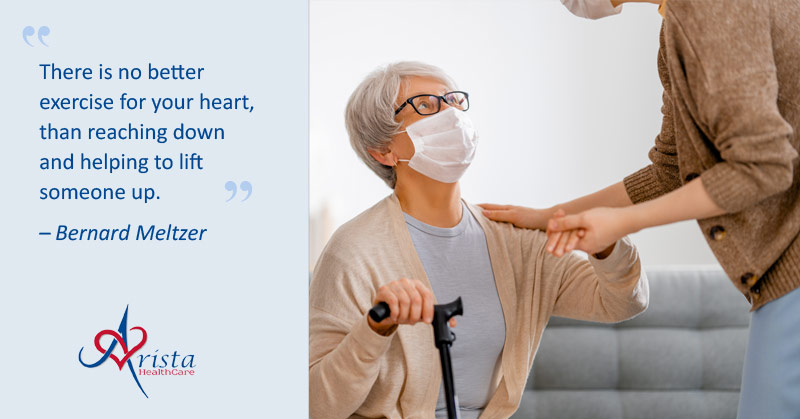Hospice volunteers are truly amazing people. Volunteers are an integral part of the interdisciplinary team of hospice professionals. Their job, once trained and ready to serve, can lead them in many different directions.
Patient Support: Most hospice volunteers serve as a companion to people who are nearing the end-of-life. That might mean visiting one to two times a week, talking, watching TV together, playing a board game, caring for the patient’s pet, or listening as the patient shares stories of his or her life. Some volunteers enjoy writing the patient’s stories down for the patient. Volunteers may be the only non-medical person that visits the patient, especially those who live in adult care facilities.
Respite: Often it is the spouse or caregiver who needs volunteer support. They may need to run an errand, go have lunch with a friend or just rest for an hour or so knowing that someone is there sitting with their loved one. It is important to care for the caregiver since they often spend 24 hours a day, 7 days a week caring for their loved one. Volunteers not only sit with the patient for an hour or two so that the caregiver can have a break, and it allows them to check in on the caregiver and spend a few minutes listening to their needs and concerns.
Vigil: Vigil support is offered when a patient is in the final hours to days of life. Volunteers are scheduled to sit with the patient as much as possible during that time so that the patient does not die alone. Volunteers provide a quiet, comforting presence for the patient. This can be particularly important to family members who cannot be present.
Bereavement: Volunteers can support family members following the death of a patient through bereavement calls or visits. When someone loses a loved one, the grieving person will likely have the need to tell their story over and over again so that it begins to settle in and make sense in their life. A volunteer can be that compassionate listening ear.
Musicians: Musicians play for individual patients or in a group setting at an adult care facility, like a small concert. Music is a universal language and can brighten the patient’s day, comfort, relax and entertain them, and bring back wonderful memories of days gone by.
Veterans: Military Veteran volunteers perform the same patient visits, but are paired with patients who themselves are veterans, thus facilitating a unique and important connection between the veteran and the patient. They are able to use their history and experience in the Armed Forces to add to the quality of life for the patient. In addition, they play a key role in our “We Honor Veterans” program, whereby we honor a patient who is a veteran for their service, by presenting a certificate of thanks and pinning them with a Veteran Service Flag pin. That one on one connection between veterans is a gift to both the presenter and the patient.
Training: Prior to visiting patients, volunteers are interviewed and attend a 30-hour training with other volunteers encompassing many areas including bereavement, communication, death and dying, pain and symptom management, social aspects and many others. There are also experiential exercises, allowing for personal reflection, introspection and an idea of what patients might experience in their dying process. This comprehensive training helps volunteers feel well prepared and confident serving in this essential role as hospice volunteer.
Click here to learn more about what to expect as a hospice care volunteer. Or, if you are ready to be a part of our amazing team of volunteers, please contact us.

